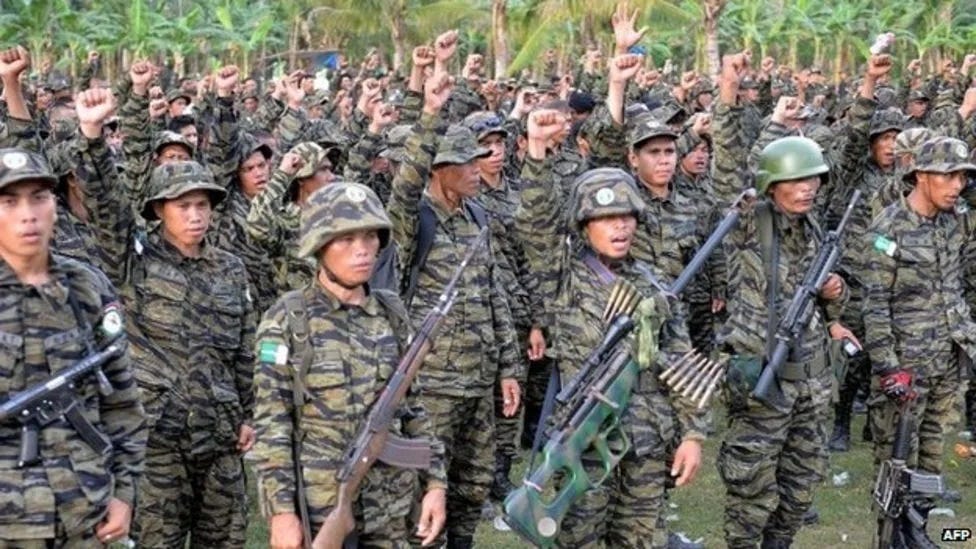Hundreds displaced in Philippine clash; suspect nabbed over terror-suspected car arson
Read SEA MILITANCY'S latest weekly counterterrorism roundup.

MAGUINDANAO DEL SUR: A clash between a Filipino terror group and a government militia force that displaced hundreds of residents and the arrest of a suspect over car arson attacks believed linked to a terror group in the southern Philippines are part of SEA MILITANCY’s latest Southeast Asia terrorism roundup from last week.
A total of 739 individuals fled their homes in Mamasapano municipality, Maguindanao del Sur province, in the wake of an encounter between a unit of the Moro Islamic Liberation Front (MILF) and the Bangsamoro Islamic Freedom Fighters (BIFF) terror group on Nov. 9, a Philippine military official said according to Minda News.
The MILF is a former rebel group, which is now part of the Bangsamoro Autonomous Region of Muslim Mindanao government.
The fighting erupted after the BIFF attacked the house of Ben Tikaw, brigade commander of the 105th Base Command of MILF--Bangsamoro Islamic Armed Forces in Tukanalipao village, according to Brig. Gen. Oriel Pangcog, the commander of the army’s 601st Infantry Division.
The clash started around 8:50pm on Nov. 9 and continued until early morning of Nov. 10, Pangcog said.
The 33rd Infantry Battalion sent troops to the area around 11am to intervene, he said.
No casualties were reported on either side. The BIFF is a breakaway group of the MILF and has factions that are aligned with the Islamic State terror group.
In the other case, the Philippine police arrested one of at least six suspects in the burning of seven parked high-end vehicles in General Santos City on Nov. 9.
General Santos City police officials said on Nov. 11 that 30-year-old Caydence Clark Gulmatico had promised to help locate his accomplices, the subject of an extensive manhunt now.
Col. Nicomedes Olaivar, General Santos City police director, said he is grateful to vigilant tipsters who helped identify and locate Gulmatico about six hours after he and companions on motorcycles set on fire seven sports utility vehicles parked along stretches of thoroughfares straddling through Bula and Dadiangas South villages.
“Efforts to find his companions are still underway,” Olaivar said in a report by NDBC News.
Sources from units of the army’s 6th Infantry Division and the military-led anti-terror Task Force GenSan are verifying claims by General Santos City residents that the arson attacks were possibly instigated by violent religious extremists that have links with either the BIFF or its allies, the Al-Khobar and Dawlah Islamiya terror groups, which are pro-Islamic State.
The three groups have a reputation for bombing buses and business establishments if owners refuse to pay protection money.
Meanwhile, Indonesia’s National Counterterrorism Agency (BNPT) said that the university campus environment has become a target for the spread of understanding and recruitment of new styles of terrorism.
The recruitment pattern begins with a soft approach through interaction in religiously student activities which is then followed up with indoctrination through communication on social media, CNN Indonesia reports.
"They are now changing their pattern, from hard to soft, they move beneath the surface, in dark spaces, using religious symbols, using religious sanctification in campus halls or campus events, from indoctrination to direct recruitment offline and online ," said BNPT chief Rycko Amelza Dahniel in Semarang city, Central Java province, on Nov. 11.
Rycko added that once indoctrinated, most students who are exposed will become lone actors carrying out actions without involvement with any groups or networks.
From the results of the BNPT's in-depth investigation, violent attacks are no longer interesting especially to the younger generation because they will provoke massive action from authorities.
"The pattern of radicalisation, the pattern of terrorist attacks, has now changed. From 2018 to 2023, in the first semester, open terrorist attacks decreased by 89 percent,” explained Rycko.
“This is caused by firstly, the massive law enforcement actions carried out by Densus 88, and secondly, the younger generation no longer needs and doesn't like violence.”
Densus 88 is Indonesia’s elite counterterrorism police force.
This phenomenon makes BNPT continue to approach campuses through discussions and seminars as well as preventing acts of intolerance which is the initial seed of radicalism and terrorism, said the official.
Indonesia has seen a spate of church and police headquarters attacks in recent years by terror groups such the Jamaah Ansharut Dawlah and Jamaah Islamiya, who are aligned with the Islamic State and al-Qaeda respectively.



